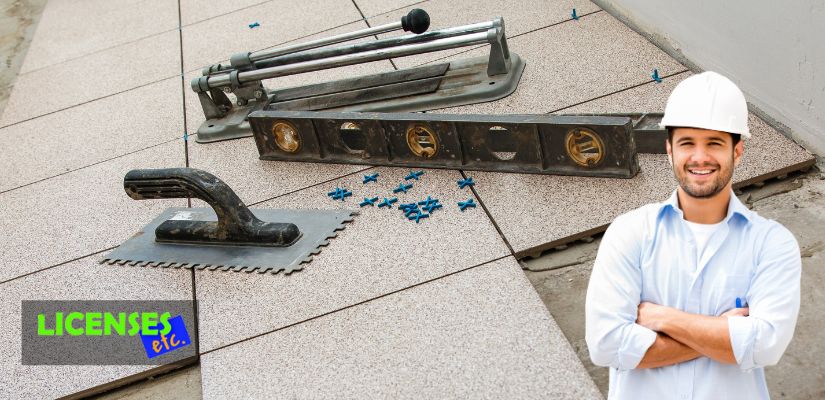- September 4, 2023
- Posted by: admin
- Category: Blog, Florida Contractor License

As a Florida flooring contractor, it is crucial to be aware of and take proactive measures to prevent construction defects. Construction defects can lead to costly repairs, legal disputes, and tarnished reputations. In this blog post, we will discuss some common construction defects in flooring and provide valuable insights on how to prevent and address them.
What Are Construction Defects?
Construction defects are flaws or deficiencies in the design, materials, or workmanship of a building project. In the realm of flooring, these defects can manifest in various ways, such as uneven surfaces, faulty installations, inadequate moisture protection, or improper use of materials. These defects can compromise the structural integrity, safety, and aesthetic appeal of the flooring.
So What Are Some Of Things As A Florida Contractor You Can Do In Preventing Construction Defects?
- Thorough Inspection: Before starting any flooring project, perform a comprehensive inspection of the subfloor and surrounding environment. Look for signs of moisture, cracks, or unevenness that may impact the installation process and long-term durability.
- Quality Materials: Ensure that you source high-quality materials from reputable suppliers. Inferior materials can lead to premature wear, discoloration, or other defects. Always adhere to manufacturer guidelines for installation and usage.
- Proper Installation Techniques: Follow industry best practices and manufacturer instructions during installation. Improper installation techniques can result in gaps, bulges, or loose flooring. Engage in regular training and stay updated with the latest installation techniques and tools.
- Moisture Management: In a humid climate like Florida, moisture becomes a critical concern. Implement proper moisture management techniques by using vapor barriers, moisture-resistant adhesives, and appropriate sealants. Conduct moisture testing before installing the flooring to avoid issues like warping, mold growth, or adhesive failure.
- Code Compliance: Familiarize yourself with local building codes and regulations related to flooring installations. Ensure that your work adheres to these standards and obtain any necessary permits or inspections.
What To Do If They Still Happen? Addressing Construction Defects…..
Despite preventive measures, construction defects can still occur. If you encounter a defect in your flooring project, swift and appropriate action is essential.
- Document the Defect: Thoroughly document the defect with photographs, videos, and written descriptions. This evidence will be valuable for both resolution discussions and legal purposes, if necessary.
- Communication: Establish clear communication with the property owner, general contractor, or other parties involved. Promptly inform them about the defect and propose a resolution plan.
- Consult Professionals: Engage experts such as structural engineers, flooring specialists, or legal professionals to assess the defect and provide guidance on potential remedies.
- Remediation: Depending on the nature and severity of the defect, implement appropriate remedial actions. This may involve repairing or replacing the affected flooring, addressing underlying issues, or providing compensation where necessary.
- Learn from the Experience: Use the incident as an opportunity to learn and improve your future projects. Identify any gaps in your processes or training and take steps to prevent similar issues in the future.
Always Put Your Best Foot Forward
As a flooring contractor in Florida, being proactive in preventing and addressing construction defects is vital for the success of your business. By following best practices, using quality materials, and staying informed about industry standards, you can minimize the risk of defects and deliver high-quality flooring installations. In the event that a defect arises, proper documentation, open communication, and collaboration with professionals will help resolve the issue in a timely manner.
Despite these possible instances that can occur, being a flooring contractor in Florida is a very rewarding career choice with ample opportunities for growth and income potential. With Florida’s thriving construction industry and constant demand for flooring installation and repair services, this makes this career & business path an ideal location for flooring contractors.
With a C-15 license, which is specifically for flooring contractors, individuals can establish their own businesses and take on various projects in residential, commercial, and industrial settings. The state’s booming real estate market and continuous construction activities provide a constant stream of job opportunities. Additionally, the competitive salary ranges from $35,000 to $75,000 per year, depending on factors such as experience, specialization, and project scope. As a flooring contractor in Florida, one can build a successful career, achieve financial stability, and contribute to the growth and development of the state’s infrastructure and housing sectors.
How LicensesETC Can Help You Get Your Flooring Contractor’s License in Florida
If you looking to get your Florida Flooring Contactor’s License or before making a decision on which license to pursue in general regarding your business, our team of licensing experts will guide you every step of the way. We make the process easy to apply for your Florida Contractor License! We fill out everything for you! Ninety-five percent of our applicants get through the process the first time with no issues. We also can help guide you in how to start up your LLC along with providing your credit reports and guidance to many 3rd party partners that can help you such as website creation, online marketing to other specific business services.
To start the process, click our Florida contractor license or call us at 239-777-1028 and schedule your FREE consultation today.
